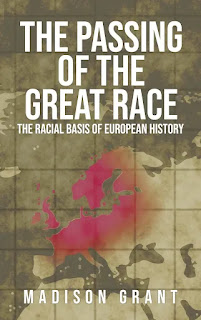Growing up in Arlington, Virginia, I attended segregated schools until we moved across the Potomac to Maryland, where racial segregation was not the local law, but I still saw no Negroes (as they were called then) in my elementary school classes.
In Junior High School (grades 7-9) there were perhaps nine Negroes in a school of 1500 students. This was not because the governor of Maryland stood in the school house door blocking Negroes but because there were so few Negroes living in the redlined, White suburban neighborhoods which fed these schools.
At a school dance, in the ninth grade there was a long line of girls along one wall and boys along the other and for some reason, I was at the microphone and was supposed to announce the next dance, which was a recording of somebody, Buddy Holly, I think, "That'll Be The Day," but I got no more than a few words out before I caught in my peripheral vision the teacher, James McFall, flying across the floor to wrest the microphone from my hand.
When he arrived he pulled me aside, looking hugely relieved, "Oh, I thought you were going to tell the two lines to walk across the floor and dance with the boy across from them."
"No," I said, "But what why would that have mattered?"
"Because," Mr. McFall told me, "Then you might have some white girl having to dance with a Nigger."
Later that year, the name of the new high school opening up which we would all be attending, got announced, and we heard about it in Mr. McFall's science classroom.
"You hear who they named it after?" he asked me, under his breath.
"Yes, Walt Whitman."
Mr. McFall looked around, under his eyebrows and over his shoulder, "You know about him, right?"
"Not much, actually. He was a poet, right?"
"Queer as a three dollar bill," Mr. McFall informed me. "Can you believe it? Named that school after a faggot."
I was 14 years old and I was not at all clear what a queer as a three dollar bill or a faggot might be. They did not teach that in science class.
Mr. McFall taught "star science" to the star students. I was not one of those. Maybe if I'd been, I'd have known about queers.
Anyway, those were the times. Diversity in our nearly all white, nearly all Christian, nearly all WASP or Catholic school of the descendants of families from alpine, British or Scandinavian places was nearly non existent.
Our high school had 20 or so Black students out of 1500.
I don't know, but I may have been a better or wiser person if I had gone to school with more Negroes, or even Asians for that matter.
My college had a little more diversity. One day a student interrupted the professor and asked if we could talk about the "Twelve percent thing," and the professor said yes.
Apparently, the university's board of trustees was considering mandating that 12% of the next class admitted to this Ivy League institution be Black.
I was genuinely perplexed. "Why would they do that?" I asked.
"Because 12% of our country is Black and only 3% of students at Brown are Black."
"But we all killed ourselves competing for grades and SAT scores to get in here. I thought admissions were supposed to be based on merit."
"But Black kids don't have a fair chance in that game."
"But why make it 12% for Black kids? Why not for Asian kids or 1% for American Samoans? Or how about 60% for the kids of blue collar workers?"
I was making myself very unpopular in that class. But it was really a novel idea to me. I hadn't heard anything about this.
The main argument seemed to be that our college ought to look like America and that having diverse racial groups would bring new and important perspectives to campus. I didn't know about that, never having been exposed to new and different perspectives from Black people having never been exposed to Black people at all.
My brother at another college later told me some Black students on his campus had formed essentially a Black fraternity because they felt they needed a place to connect and feel welcomed, which sounded like resegregation to me, but then again, when they attended classes or played on teams they might share a different perspective with their White classmates.
Later, I learned many corporations wanted a workforce which "looks more like America" by which they meant physical appearance, as in race. To me, looking like America might look like someone with piercings and tattoos and green hair and jeans with big holes around the thighs.
On youtube I saw an interview with Warren Buffett and Charles Munger of Berkshire, Hathaway and they were asked about a photo of the board of directors which was, apparently, bereft of Black faces. Buffett said they chose board members for a variety of reasons, mostly having to do with their capacity to think innovatively, be motivated by things other than simply making money, essentially saying he did not consider race a merit.
Munger was more explicit: He told a story about one of their law firms which handled business for the archdiocese of Los Angeles. Munger's lawyer told the archbishop they were happy for the business but there were surely a fair number of Catholic lawyers in LA who could handle the affairs of the archdiocese. The archbishop replied: "Last year I was facing some serious surgery. I did not look around for the best Catholic surgeon."
Living in New Hampshire after living in the Washington, D.C. suburbs and having jobs in the city both my wife and I have noticed how odd to seems to see so few Blacks in our every day lives.
"I miss seeing them," my wife said, simply.
"I hadn't noticed, but now that you mention it, it does get a little dull dealing with just New England Yankees day in and day out."
When I go to my office near Lawrence, Massachusetts, I see Hispanic folks from all over the Caribbean and South America. I don't know that experience enriches my life or changes my perspective, but it does require me to make adjustments in how I communicate. There are some Blacks, mostly from Africa, rather than from the American South, and they are more foreign than Black, if you know what I mean. I might forget a name and ask my secretary, "Do you remember that name of the lady yesterday from Nigeria?" I wouldn't say, "That Black lady."
We see people from South Asia (the subcontinent) and from all over the Middle East in the office.
Many of these people are different not because of their race but because of their educations or lack of it. Hispanics, in our office at least, are from a certain socioeconomic group and they miss more appointments are often very early or very late and engage in magical thinking, as when one lady told me she rubs iodine over her mothers neck because she heard it was good for the thyroid. That is not a Hispanic perspective, but it may represent a type of thinking from a specific subculture, uneducated, poor, unscientific.
Would I have been broadened by exposure to her children when I was in college?
Some have argued that globalization has meant Americans have to compete in world wide markets, and for that we need a work force comfortable with diversity, comfortable with people who look different and who make think differently from us. But I buy most of my stuff on Amazon and it's made, mostly in China, South Asia or Vietnam or Japan and I've had next to no exposure to their different perspective. You may say we can import stuff and remain parochial, but we need to be more open to others to sell to them, to export. But how many American farmers speak Japanese to whom they export beef or soy beans?
England voted to withdraw from the EU, mostly because the British did not like the new multiracial/multicultural society and wanted to clamp down on immigration and they wanted to be "more like us." Or something like that. Donald Trump reacted to Brexit saying, "They wanted borders." For once, he may have got something right.
I always liked the look of Starship Enterprise which had Black, Asian, White all sorts of crew members working together apparently harmoniously.
My father in law, a White Mormon from Utah, whose Church forbids Blacks in the clergy, had a long career in the Army and in all the years I knew him and saw him interacting with Black people I never detected a whiff of him seeing or treating a Black person differently than a White person. In fact, he was in uniform coming through a hotel door and a Black man held the door open for him, as he was loaded down with a long russet bag and he thanked the man and shook his hand, and after he passed on into the lobby the Black man grinned at me and said, "I spent twenty five years in the Army and no general ever shook my hand. I hold a door open for that one and he does."
The army my father in law knew was totally integrated, especially in the Medical Corps, where all that mattered was competence.
I think he benefited from that perspective, but I'm not sure that applies to what happens in college.





































